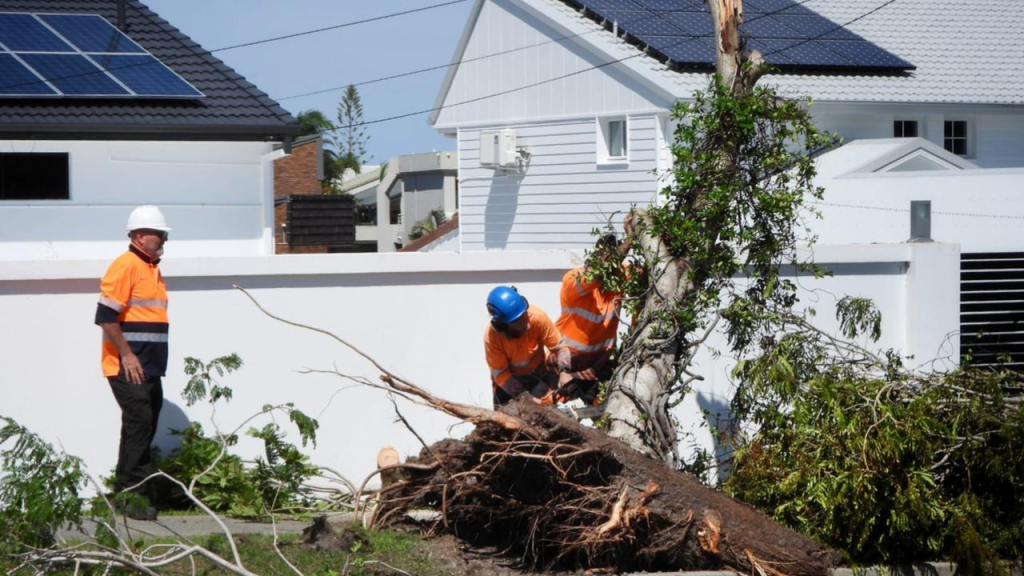The Federal Treasurer Josh Frydenberg handed down the 2022–23 Federal Budget on 29 March 2022.
In an economy emerging from the pandemic, the Treasurer confirmed an unemployment rate of 4% and an expected budget deficit of $78 billion for 2022–23. As international uncertainties add pressure on the cost of living, key measures in the budget provide cost of living relief in the form of an increased Low and Middle Income Tax Offset, a one off $250 payment for welfare recipients and pensioners and a 6-month fuel excise relief.
Other measures for business seek to promote innovation, with expanded “patent box” tax concessions proposed and provide tax incentives for small business to invest in their employees’ skills. A lower GDP uplift rate for PAYG and GST instalments has also been proposed to support small and medium business cash flow.
Below we summarise the key announcements of the budget for both individuals and small to medium business.
Individuals
- The low and middle income tax offset will be increased by $420 in the 2021–22 income year to ease the current cost of living pressures. Taxpayers who have taxable income between $37,000 and $126,000 in their 2022 tax return will also receive a $420 tax offset. This offset is non-refundable – meaning it can only be used to offset tax on your income. There’s no expectation this will be extended to the 2023 financial year.
- A one-off payment of $250 will be made in April to individuals who currently receive Australian government social security payments, including pensions, to ease cost of living pressures.
- Temporary relief from fuel price pressures by halving the excise and excise-equivalent customs duty rate that applies to petrol and diesel for six months ending 28 September 2022.
- Additional funding will be provided over 5 years to support older Australians in the aged care sector with managing the impacts of the COVID-19 pandemic.
- Costs of taking a COVID-19 test to attend a place of work will be tax deductible for individuals and exempt from fringe benefits tax from 1 July 2021.
- A single Paid Parental Leave scheme of up to 20 weeks paid leave will replace the existing system of 2 separate payments.
- The Medicare levy low-income threshold amounts for singles, families, and seniors and pensioners for the 2021–22 year will be CPI indexed.
- The Government will increase the number of guarantees under the Home Guarantee Scheme to 50,000 per year for 3 years from 2022-23 and then 35,000 a year ongoing to support homebuyers to purchase a home with a lower deposit (as low as 5%). The Home Guarantee Scheme seeks to ensure part of an eligible buyer’s home loan is guaranteed by the Government so they can buy a home sooner with a smaller deposit and without needing to pay lenders mortgage insurance.
Small to Medium Businesses
COVID-19 economic support
Additional state and territory COVID-19 business support grant programs will be eligible for tax treatment as non-assessable non-exempt income until 30 June 2022.
An additional $53.9 million in the 2021-22 in this financial year towards Business Support Payments and access to the Pandemic Leave Disaster Payment.
Upskilling employees
Small and medium businesses will be able to deduct an additional 20% of expenditure incurred on external training courses provided to their employees. Businesses with an annual turnover of less than $50 million will have access to the bonus 20% deduction for the cost of external training courses delivered to their employees by providers registered in Australia.
Small business training, digital technology and cyber security
To boost investment in skills and new technology, the government has announced 3.6 million businesses with a turnover below $50 million will be eligible for:
- $120 tax deduction for every $100 spent on training employees.
- $120 tax deduction for every hundred dollars spent on digital technologies such as cloud computing, eInvoicing, cyber security and web design.
- Support up to an annual cap of $100,000 per year.
Support for small business cash flow
- A $1.85 billion package of cash flow relief will be provided to small businesses and sole traders. An average business is set to benefit by about $800.
- $5.5 million to establish a dedicated small business unit in the Fair Work Commission.
Improved access to support for small business owners
- $4.6 million to extend Beyond Blue’s NewAccess for Small Business Owners program and $2.1 million for Financial Counselling Australia’s Small Business Debt Helpline.
- $8 million to the Australian Small Business and Family Enterprise Ombudsman to work with service providers to offer business planning, capacity building and financial literacy.
Boost apprentice jobs and skills
The Australian government has provided an additional $365 million to extend the successful Boosting Apprenticeship Commencements (BAC) wage subsidy, which was originally due to end on 31 March 2022, for a further three months until 30 June 2022. It is expected that an additional 35,000 apprentices and trainees will be supported under the extended scheme.
From July 2022 a new apprenticeships incentive system will be implemented. Apprentices and trainees in priority occupations will receive a direct payment of up to $5,000 over two years and employers may be eligible for up to $15,000 in wage subsidies. After real growth in apprenticeships through the pandemic, the new system only targets priority occupations which may risk reducing apprenticeship commencements at a time when skills needs are significant.
Additional funding for skills development
There is a $3.7 billion increase in funding to the vocational and education training sector and an expansion of the Transition-to-Work employment service, the introduction of the ‘ReBoot’ pre-employment program to provide mentoring and learning experience for young people and training subsidies for people who want to work in the aged care sector.
Change to PAYG uplift rate
In 2022‑23, the PAYG income tax and GST instalments will be increased by 2 per cent, instead of 10 per cent for the income year.
The government said the measure, already announced, will mean $1.85 billion in cash-flow support for 2.3 million small to medium businesses, sole traders and others who use the instalment method.
Boost to sovereign manufacturing capability
The government is investing a further $328.3 million in the Modern Manufacturing Strategy, expanding the patent box tax concession to assist manufacturers to translate good ideas into commercial outcomes and SMEs to innovate and adopt new technologies.
Improved regional internet services
The government will spend $480 million to upgrade regional internet services, enabling up to one million businesses and households in regional and remote areas to access fixed wireless services for faster internet speeds. This bodes well for regional businesses.
Support for a healthy workforce
The government will spend $2 billion on booster injections and flu vaccines to slow COVID infections and prepare for the first significant flu season in three years.
Other highlights for business
- Concessional tax treatment will apply from 1 July 2022 for primary producers selling Australian Carbon Credit Units and biodiversity certificates.
- Access to employee share schemes in unlisted companies will be expanded.
- Additional funding will be provided to further reform insolvency arrangements, including the insolvent trading “safe harbour”.
- Business registry fees will be streamlined over 3 years from 2023–24.
- Wholly-owned Australian incorporated subsidiaries of the Future Fund Board of Guardians will be exempt from corporate income tax.
Superannuation
- The 50% reduction of the superannuation minimum drawdown requirements for account-based pensions will be extended for an additional year.
Tax administration
- Companies will be able to choose to have their PAYG instalments calculated based on current financial performance, extracted from business accounting software, with some tax adjustments.
- Businesses will be allowed the option to report taxable payments reporting system data (via accounting software) on the same lodgment cycle as their activity statements.
- Trust and beneficiary income reporting and processing will be digitalised.
- IT infrastructure will be developed to allow the ATO to share single touch payroll data with state and territory revenue offices.
- The ATO will be given funding to extend the operation of the Tax Avoidance Taskforce by 2 years.
- The start date of the 2019–20 Budget measure for holders of Australian Business Numbers will be deferred by 12 months.
The full budget papers are available at www.budget.gov.au and the Treasury ministers’ media releases are available at ministers.treasury.gov.au. For an easily digestible summary of the key announcements, visit TaxBanter and download their publication here.
As always, if you need to discuss any of these updates and how they may affect your business, contact your Arabon accountant or make an appointment here.






